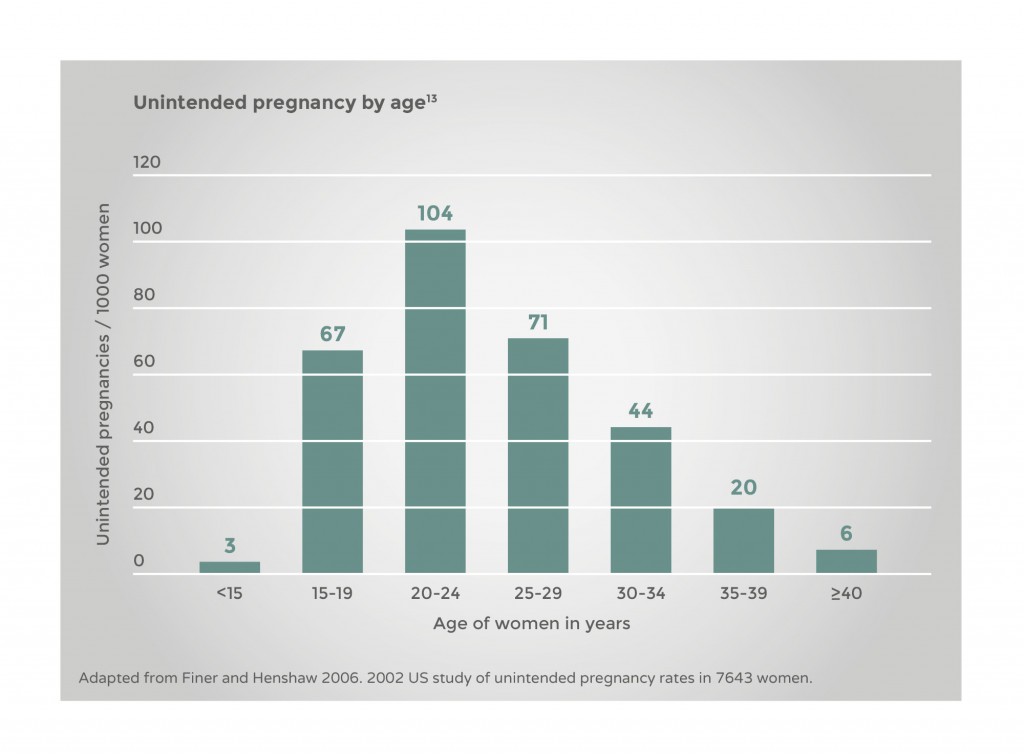Unintended pregnancy results from unprotected sexual intercourse (UPSI). UPSI is common.1
In a large European survey of over 7000 sexually active women, 30% reported having unprotected sex, at least once, in the last 12 months.1
These frequent acts of unprotected sexual intercourse are not happening in a distinct sub-population, but happen irrespective of age, income, education level and marital status.1
Unprotected sexual intercourse can happen, even when a couple consciously tries to prevent it.
Unprotected sexual intercourse can result from a couple not using any contraception,1 including ‘withdrawal’.2 It can also happen when they consciously try to prevent it. For example UPSI can happen as a result of:
– Accidental condom problem1 (breakage, slippage, not on in time)
– Oral contraceptive (OC) problems1 e.g. forgotten pill
– A temporary break from the usual contraceptive1
– Forgetting to apply a patch or insert a vaginal ring1
UPSI can also happen as a result of non consensual intercourse (rape).
The majority of women say that there are no particular circumstances that could explain their lack of contraception or contraception failure.1 Only a minority recognised that some factors may have influenced their behaviour, making contraceptive failure more likely.1
These factors included a new partner or relationship breakdown, travel, influence of alcohol or using a new contraceptive method.1






